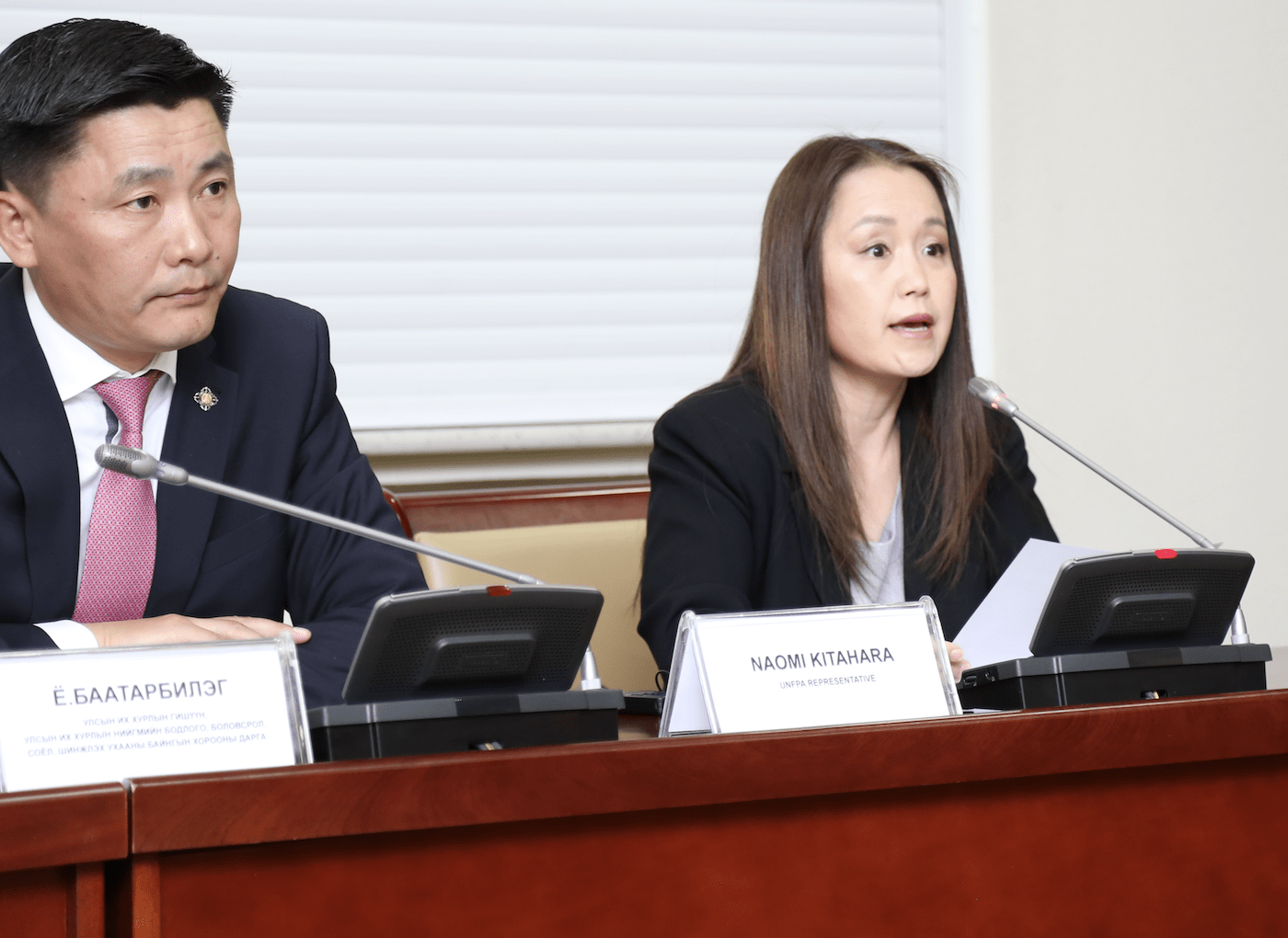ULAANBAATAR, Mongolia, June 11, 2018 – Gathering for a two-day forum on ‘Strengthening the Parliamentarians for the Achievement of the Sustainable Development Goals: Aging, Fertility and Youth Empowerment’, 28 parliamentarians and population policy experts from 12 countries across Asia and the Pacific will be conferring with their Mongolian counterparts on responses and solutions to key challenges facing the rapidly changing region.
Since the launch of the 2030 Agenda for Sustainable Development there has been increasing recognition of parliamentarians’ roles and responsibilities in advancing the Agenda and helping achieve its 17 wide-ranging and interconnected Sustainable Development Goals (SDGs), including Goal 3 on Good Health and Well-Being, Goal 5 on Gender Equality, Goal 10 on Reduced Inequalities and Goal 17 on Partnerships for the Goals.
“Parliamentarians are instrumental in helping bring about policy change on a number of fronts, serving as a bridge between government and civil society. As such, their leadership in addressing population and development issues is indispensable for creating a sustainable society where, as the 2030 Agenda pledges, no one is left behind,” said Hitomi Tsunekawa, Chief Manager of the Asian Population and Development Association (APDA), which has worked with the Government of Mongolia and the United Nations Population Fund (UNFPA) to host the meeting.
The global population has more than doubled since 1968, and it is predicted that the numbers will continue to climb at least until the middle of the 21st century, despite dramatic declines in fertility rates coupled with rapidly ageing populations in more and more countries and regions, with Asia-Pacific at the forefront of this demographic transition. Population ageing occurs not only by increases in life expectancy, but primarily by declines in fertility far below the replacement level.
At the same time, Asia-Pacific overall has been witnessing rapid urban development and economic growth. In just a few decades, hundreds of millions of people have been lifted out of poverty across many countries. Yet, significant challenges persist, such as crippling gender inequality and discrimination, an ever-growing and alarming gap between the richest and the poorest, and growing disenfranchisement of young persons on the political and socioeconomic fronts. These challenges undermine the significant progress being made across Asia-Pacific, and jeopardize the region’s ability to achieve the SDGs.
“This week’s meeting will allow parliamentarians to share their respective countries’ experiences and learn from those of others, so they may work better with their governments and other partners to develop effective policies and programmes to tackle these challenges,” said Yo. Baatarbileg, Member of Parliament Chair of the Parliament Standing Committee on Social Policy, Education, and Science, Mongolia and Member of Parliament.
“Mongolia, which has also learnt so much from our own development journey in recent years, is pleased to host this gathering in light of the upcoming regional review of the Programme of Action stemming from the International Conference on Population and Development. ICPD continues to be as relevant today as it was when it was developed in 1994.”
“By emphasising how crucial rights-based sexual and reproductive health is, the very core of ICPD, with gender equality and youth empowerment essential enablers of sustainable development, countries can better achieve both the potential demographic dividend presented by younger populations as well as the potential longevity dividend of ageing populations,” noted Bjorn Andersson, UNFPA Asia-Pacific Regional Director. “We must take a life-cycle and holistic approach when it comes to population and development.”
“In developing population policies to address shifting population dynamics, we urge parliamentarians to advocate with governments to ensure that the rights of women, girls and young persons are respected,” added Naomi Kitahara, UNFPA Representative in Mongolia. “This includes unfettered access to sexual and reproductive health information and services, including the availability of modern contraception and rights-based family planning. Mongolia has been making significant strides in this regard.”
The meeting will conclude with the adoption of the Ulaanbaatar Declaration aimed at reiterating and advancing the ICPD agenda in Asia-Pacific and beyond. This will then be fed into the 7th Asian and Pacific Population Conference (APPC) being held in November 2018 by UNFPA Asia-Pacific and the UN Economic and Social Commission for Asia and the Pacific (ESCAP), a regional review to evaluate progress made in achieving ICPD objectives which are crucial in meeting key objectives and targets under the SDGs.
…………..
UNFPA is the UN agency delivering a world where every pregnancy is wanted, every childbirth is safe and every young person's potential is fulfilled. UNFPA Mongolia is currently implementing the 6th Country Programme 2017-2021, closely aligned with the United Nations Development Assistance Framework (UNDAF) for Mongolia. For more information contact: Tim Jenkins, UNFPA Mongolia: Jenkins@unfpa.org +XX 8011-0366)
APDA is a non-profit, tax exempt organization under the authorization of the Government of Japan. Since its establishment in 1982, APDA has worked toward fulfilling its mission to address population and development issues to build a society where people can live with dignity, functioning as the Secretariat of the Japan Parliamentarians Federation for Population (JPFP), supporting parliamentarians’ activities in the Asian, Africa and Arab regions, and conducting research and survey programmes in the field of population and development. For more information contact: apda@apda.jp +81-3-5405-8844


